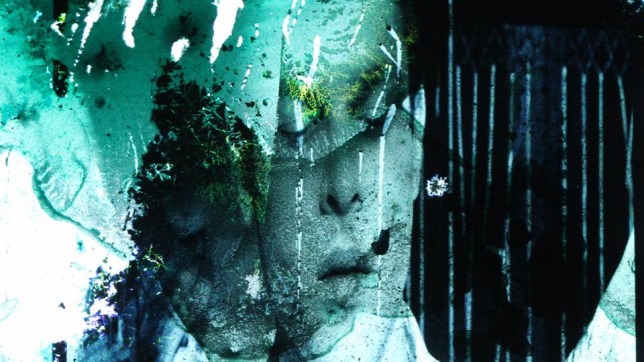Rotting Hamlet
Young experimental filmmakers Péter Lichter and Bori Máté will be screening their new adaptation of Hamlet, The Rub, at the Critics’ Week in Berlin. Their film is one of the most exciting Hungarian features for 2018, clearly demonstrating that avant-garde cinema is as engaging as ever.
“Sooner or later, you’ll have to go to sleep.” The sinister quote (lifted from Don Siegel’s Invasion of the Body Snatchers) serves as the motto for Péter Lichter and Bori Máté’s experimental feature film The Rub’ but sleep is something that will not tempt you while watching the movie. Of course this will not be a regular film experience either, and will require another state of mind. But as the narrator Szabolcs Hajdu (a recent winner of Karlovy Vary’s Crystal Globe for It’s Not the Time of My Life) starts to recite the Hamlet monologues in a slow, brooding yet passionate manner, the unpredictable but carefully designed flow of images will surely teach you how it needs to be watched.
The Rub is an experimental film, yet it speaks to everyone. Not only because Shakespeare means something to everyone, but because Lichter is a skilled and experienced filmmaker who has been crafting avant-garde shorts since the age of 17. He has practically tested all forms of experimental film, and has achieved considerable local and international success, mainly with found footage films (Rimbaud won the Hungarian Film Critics’ Award in 2014). His first feature film, Frozen May, was released in 2017 and experimented with mixing avant-garde and genre traditions. Lichter created a post-apocalyptic horror setting in a forest in winter, seen solely through the point of view of the protagonist, a survivor of the mysterious Fall in 1990. The resulting film is a meditation on different approaches to storytelling and invites both psychological and non-human interpretations.
However, Lichter’s new feature follows a different method. He and his collaborator, Bori Máté, manipulated the film footage by drawing and painting on it – a well-established avant-garde tradition mastered by Stan Brakhage, among others – and also partially destroying the material by pouring acid on it. Moreover, they buried some of the footage (a part of which was provided by the National Film Archive) in the ground for several weeks. Traces of decay created beautiful and haunting images, edited to retell the story of Hamlet’s demise. Lichter and Máté’s concept promises an original and fitting adaptation of Shakespeare’s classic.
The Critics’ Week, organised at the same time as the Berlin Film Festival, welcomes Bori Máté as a returning artist. Her debut short film, The Headless Appearance, was premiered in the same selection in 2017. This time Máté and Lichter bring not one but two of their films. Besides The Rub, another collaboration, the short film 8th October 2016 will also be screened. The film, reflecting on the suspension of the independent Hungarian daily paper Népszabadság, proves that Lichter and Máté are versatile artists, always ready to surprise their audience. Just like true experimental filmmakers.
Bence Kránicz
